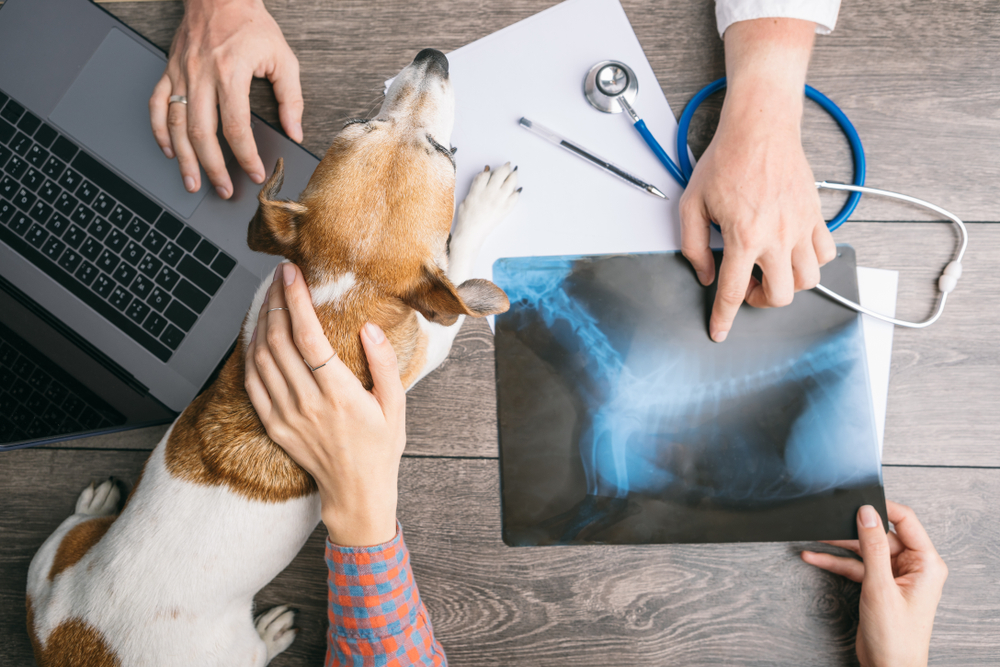

Veterinary x-rays are one of the most crucial tools in the diagnosis and treatment of our furry friends. They provide a window into the inner workings of our animal companions, revealing issues that may not be apparent from a simple physical examination.
The Importance of X-rays in Veterinary Medicine
The use of veterinary x-rays has revolutionized the way we approach animal care. They allow us to identify a wide range of health issues, from fractures and tumors to foreign objects and infections. Without them, diagnosing these conditions would be much more challenging, and in some cases, almost impossible.
One of the significant benefits of veterinary x-rays is their immediacy. In emergency situations, they can quickly provide critical information that can save a pet's life. They're also instrumental in routine check-ups as they can detect problems before they become serious, helping to ensure the long-term wellbeing of our beloved pets.
Additionally, veterinary x-rays are a vital tool when it comes to surgical planning. They give vets a clear picture of what they're dealing with, minimizing surprises during operations, and contributing to more successful outcomes.
The Diagnostic Role of Veterinary X-rays
Veterinary x-rays not just about identifying broken bones; they're about understanding the overall health of an animal.
For instance, abdominal x-rays can reveal issues with the liver, kidneys, or intestines. Chest x-rays can help diagnose heart and lung diseases. Orthopedic x-rays can pinpoint arthritis or other bone diseases. Dental x-rays can unveil hidden dental disease that can cause significant discomfort and health issues in pets.
X-rays can also monitor the progress of treatments, letting us know if a certain therapy is working or if we need to adjust our approach. They're indispensable in managing chronic conditions, tracking the development of diseases, and ensuring the effectiveness of treatments.
Types of Veterinary X-rays
There are several types of veterinary x-rays, each designed for specific diagnostic purposes.
Standard or plain x-rays are the most common type. They're highly effective in examining bones and can also provide good images of the lungs and other soft tissues.
Contrast x-rays involve the use of a contrast medium, which is either swallowed or injected into the pet. This type of x-ray helps highlight certain areas of the body, making it easier to detect abnormalities.
Finally, there's the computed tomography (CT) scan, which generates a 3D image of the pet's body. This type of x-ray is particularly useful in diagnosing complex cases and planning intricate surgeries.
Common Diseases Diagnosed with Veterinary X-rays
Veterinary x-rays can help diagnose a myriad of diseases. Bone fractures and dislocations are the most obvious ones, but x-rays can also detect tumors, both benign and malignant.
They can identify heart diseases by revealing an enlarged heart or fluid in the chest cavity. Respiratory problems, such as pneumonia, can also be detected through x-rays.
Gastrointestinal issues, such as obstructions caused by foreign objects, can be easily spotted. Dental diseases that are often missed during regular check-ups can be diagnosed too.
Finally, x-rays can also help identify urinary conditions by revealing stones in the bladder or kidneys.
The Vital Role of Veterinary X-rays in Pet Health
Understanding what veterinary x-rays are and how they work can help pet owners appreciate the complexity of animal healthcare and the importance of regular check-ups. Early detection is often key in successfully treating many diseases, and x-rays are invaluable in this regard.
For more information on veterinary x-rays and their diagnostic role, visit Dr. J Personal Vet at our Atlanta, Georgia office. Call 855-738-7437 to schedule an appointment today.





